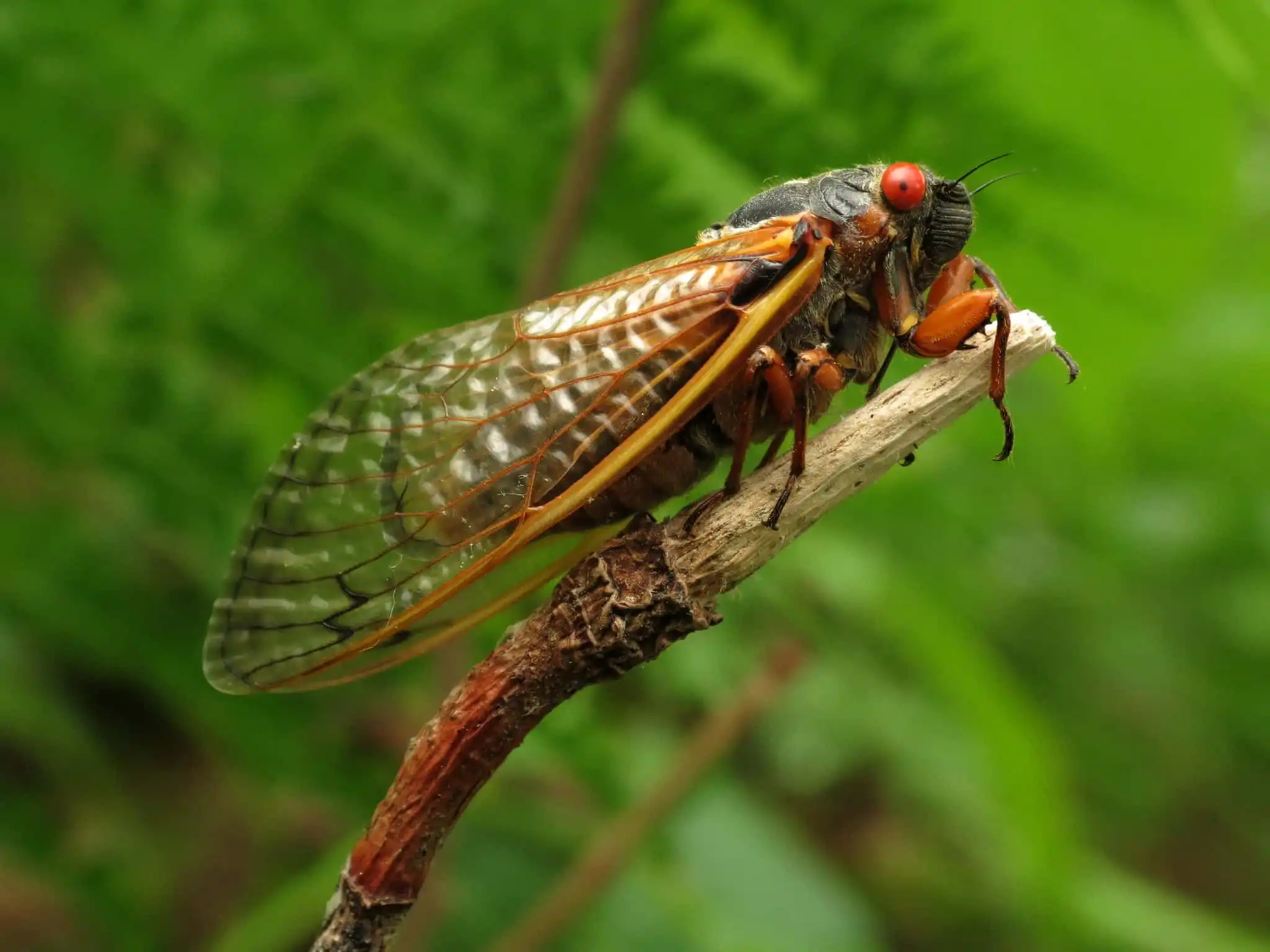First double cicada event in more than two centuries will see trillions of cicadas emerge this spring. This map shows where.
Trillions of cicadas emerge after 13 or 17 years underground, creating a deafening chorus in a rare synchronized event.
Cicadas are truly fascinating creatures with one of the most extraordinary life cycles in the animal kingdom. There are two main types of cicadas: annual cicadas that appear every year, and periodical cicadas that spend the majority of their lives underground as nymphs, emerging synchronously after either 13 or 17 years, depending on the species. This long developmental phase spent underground is a crucial growth period during which the nymphs feed on sap from tree roots.
The emergence of cicadas is a spectacular event that transforms the landscape. Male cicadas climb to tree branches to sing in chorus, a call to attract mates. This chorus can reach astonishing volumes, sometimes as loud as a rock concert. After mating, female cicadas lay their eggs in tree branches, and when the eggs hatch, the new nymphs fall to the ground and burrow into the soil, starting the cycle anew.
This year marks a unique occasion as both a 13-year brood and a 17-year brood will emerge simultaneously, a rare phenomenon that hasn't occurred since 1803. The next double-tap cicada event won't happen until 2037. The emergence of these broods is based on geographical location and timing, with each brood assigned a unique Roman numeral for identification.
Brood XIX, known as the Great Southern Brood, will emerge in several states in the southern United States, while Brood XIII, or the Northern Illinois Brood, will molt out of its 17-year cycle in Illinois, Iowa, and Wisconsin. The next co-emergence of these two broods won't occur for another 221 years.
The mechanism behind the cicadas' ability to produce loud sounds is fascinating. Male cicadas have specialized organs called tymbals that produce a buzzing or singing sound when rapidly contracted and relaxed. These sounds can exceed 100 decibels, making cicadas one of the loudest insects in the world.
While the prospect of trillions of cicadas emerging may sound daunting, there's no need for concern as they don't sting or bite. The specific 13- or 17-year cycles of periodical cicadas are thought to help avoid synchronization with potential predators' life cycles, enhancing their survival.
In conclusion, the emergence of periodical cicadas is a magical spectacle of nature that showcases the ingenuity and resilience of these fascinating insects. Enjoy the experience of their loud chorus and marvel at the beauty of their synchronized emergence.











Comments on First double cicada event in more than two centuries will see trillions of cicadas emerge this spring. This map shows where.